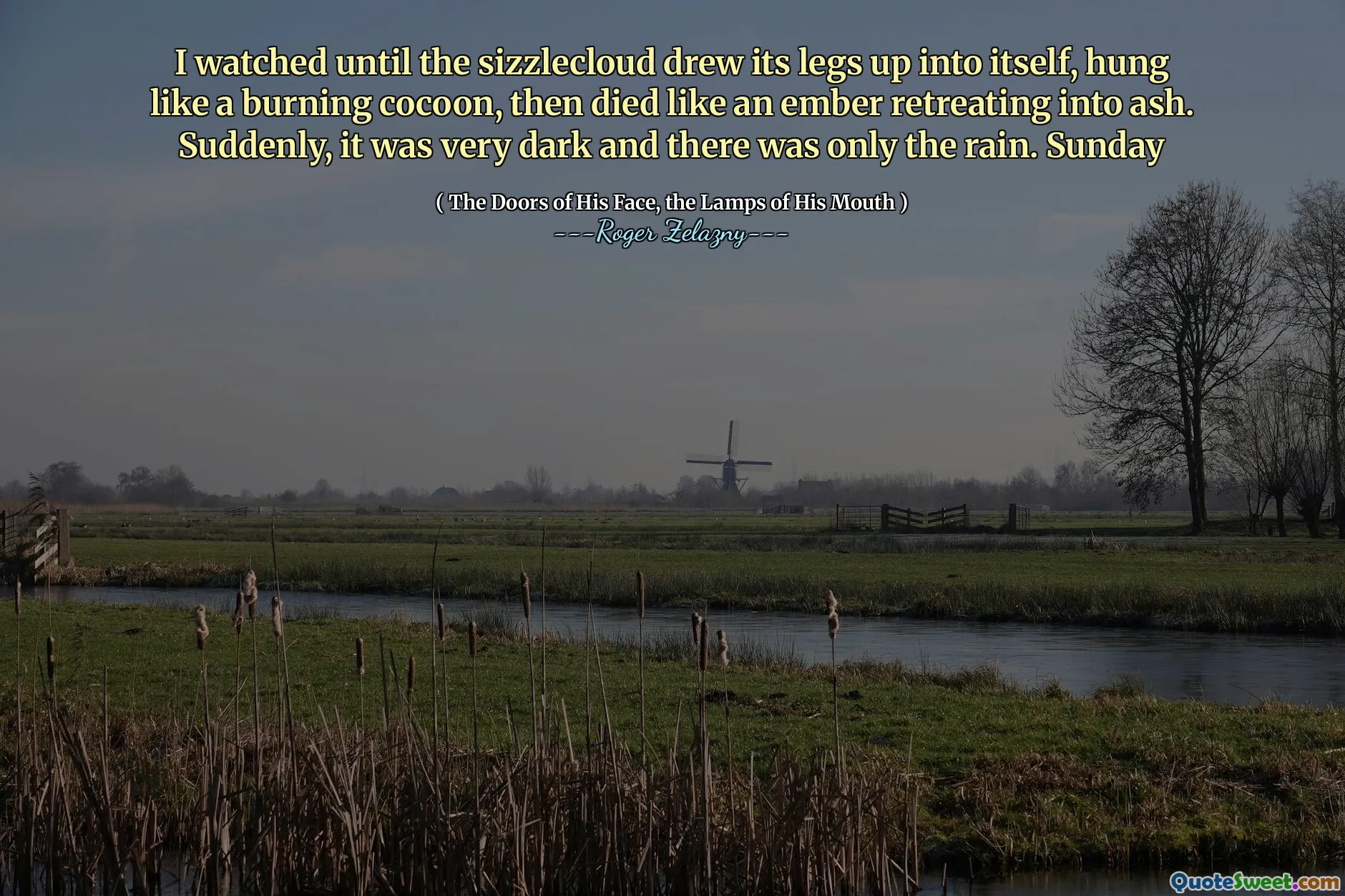
I watched until the sizzlecloud drew its legs up into itself, hung like a burning cocoon, then died like an ember retreating into ash. Suddenly, it was very dark and there was only the rain. Sunday
This evocative passage paints a vivid and almost cinematic image of transformation and the end of a cycle. The sizzlecloud, with its legs drawn up and metaphorically contained within itself like a cocoon, symbolizes a moment of intense climax or culmination—from energy and fire to a slumbering, dormant state. The comparison to a burning cocoon evokes a sense of both destruction and potential: something that once burned brightly, consuming itself, and now retreating into the stillness of ashes. The imagery of an ember retreating into ash suggests a fading light, a quiet resignation after fervor fades away. The sudden darkness and the presence of rain reinforce feelings of cleansing, renewal, or perhaps despair—an external force washing over the remnants of something once alive. The mention of 'Sunday' subtly anchors this transient scene within a specific moment or day, perhaps implying the passage of time, a pause, or a moment of reflection amid decay. Such descriptions evoke themes of mortality, transformation, and the cycles of nature, reminding us that endings often prepare the stage for new beginnings. The poetic language emphasizes that even in darkness, there is a natural rhythm to change, and perhaps a promise of rebirth beyond the ashes. This passage invites us to contemplate the beauty inherent in endings and the quiet, often unnoticed, moments of transition that shape our understanding of decay and renewal.






